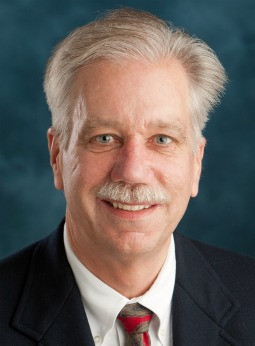
A Consultation on Clinical Ethics with Dr. Andrew Barnosky
Dr. Andrew Barnosky, Director of the Adult Clinical Ethics Consultation Service and Chair of the Adult Ethics Committee at the University of Michigan Health System conducts a valuable clinic for us--on the vital role and reasons for the increasing use of ethics consultations in patient care.
When we first heard about clinical ethics consultation, we assumed it primarily served as a helpline for health care practitioners interested in getting a "second opinion" and perspective from colleagues about ethical dilemmas they encounter in their daily work. To be sure, the service is such a resource. Further--because Michigan is a premiere teaching institution, the service is central to educating medical students about the ethical dimensions of patient care.
Equally significant, however, are the ethics consultations the service provides to all patients and physicians who request them--and thus its role in supporting patient-centered care approaches and in advancing public education about ethical decision-making.
Consider this scenario presented by Dr. Barnosky:
An older woman enters the hospital after a stroke. She has not left any instructions, known as an advanced directive, nor has she signed off on any legal documents outlining her treatment preferences and care wishes, in the event her condition leaves her unable to make her own decisions. Her family is supportive, but several of them disagree about her care and treatment. Because the patient cannot make decisions and the family wishes to receive guidance that will help them act in her best interests as best as they can, they ask for an ethics consultation from the Adult Clinical Ethics Consultation Service/Committee.
This situation is one we can all immediately appreciate. Based on our conversation with Dr. Barnosky about the service's purpose and how its members go about their work, we can also appreciate its many benefits. First, among them--an ethics consultation service explicitly acknowledges and announces to patients--that ethical dilemmas and concerns--may be integral to their care. Second, such a service gives patients and their loved ones an additional expert perspective on how to think about their treatment and care. That is, by consulting with other specialists, including bioethicists and health care team members with ethics training, patients stand to gain different and expanded insight into their care options and the many contingencies upon which their own decision options depend. Further, members of the service are very familiar with the ethics dimensions of care and skilled in the many and varied ways to effectively talk with others about ethical decision-making. As a result, they are able to offer advice and counsel supported by reflective practice and experience.
Dr. Barnosky, who holds multiple responsibilities as an emergency medicine physician and Associate Professor of Emergency Medicine--was also clinical about his ethics role...and offered a few cautionary notes. Primarily the advisory that-- ethics consultations are just that--consultations that express nonbinding evaluations intended to help patients and their loved ones make their own evaluations and judgments about the ethics elements and decisions that will direct their care.
This is a welcome advisory...and worthwhile to think further about. Indeed, there are areas of our personal and intimate lives to which we have ceded decision-making and practical judgment to experts. With beneficial--as well as harmful results for individuals and society. And yet, as Dr. Barnosky tells us--medicine's shift to patient-centered philosophies over its paternalistic past clearly signals a patient education focus that emphasizes equitable communication and the learning of independent judgment to encourage abilities, when possible, to make decisions in the best interests of those receiving care.

